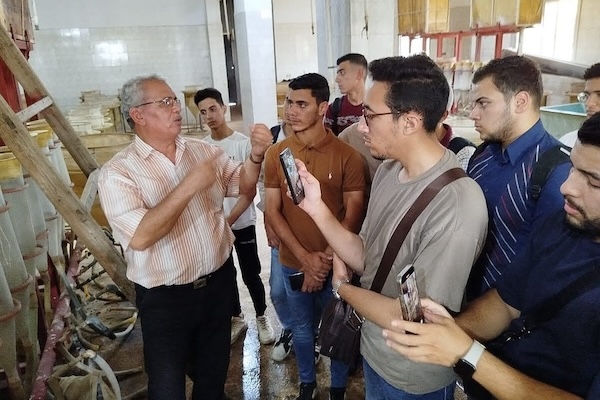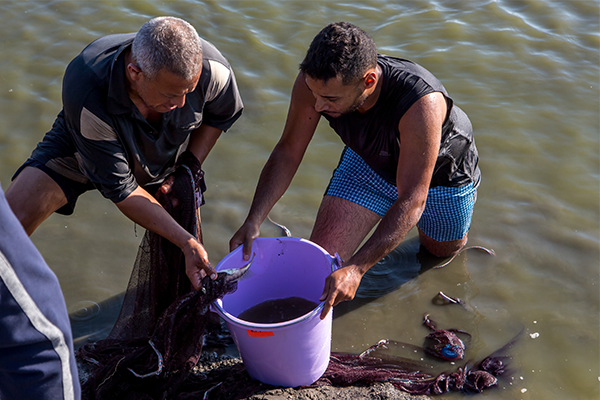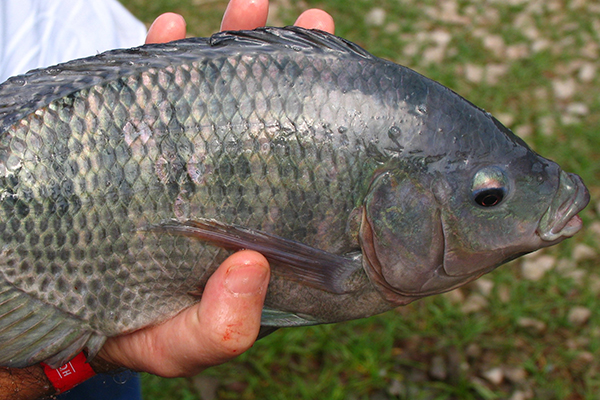Technology uptake marks a shift in Kenya, with welfare driving growth, efficiency and sustainability

Kenya’s aquaculture sector is moving toward more responsible and humane fish farming with the launch of the FAI Tilapia Welfare App last month. The new tool is part of the Kenya Fish Welfare Project, a growing effort led by Ethical Seafood Research (ESR), FAI Farms, and the Kenya Marine and Fisheries Research Institute (KMFRI) to raise the bar for tilapia welfare across the country.
Alongside the app, the initiative includes in-person training designed to give farmers and extension officers the knowledge and resources they need to boost animal welfare and farm performance.
“This initiative builds on our work with FAI in Egypt, where the adoption of welfare-focused training and digital tools has significantly improved tilapia farming practices,” said Wasseem Emam, founder, director and head of research at ESR. “By applying these learnings in Kenya, we aim to support a more sustainable and welfare-conscious aquaculture sector across East Africa.”
“FAI is committed to improving fish welfare globally, and this project in Kenya is an important step in that journey,” said Murilo Quintiliano, COO of FAI. “While the scale of aquaculture in the country is still relatively small, Kenya is one of the fastest-growing fish-producing nations in Africa, so we’re excited to be supporting welfare work at this early stage.”
The year-long rollout officially got underway last week at the Kenya Marine and Fisheries Research Institute’s headquarters in Kisumu, where thirty Extension Officers from nine counties – including Busia, Homa Bay, Kakamega, Kisii, Kisumu, Migori, Nyamira, Siaya and Vihiga – took part in a hands-on training workshop. The session marked the first step in equipping local officers with the practical skills to implement the tilapia welfare tools on the ground, laying the groundwork for broader adoption across Kenya’s fish farming regions.
The training blended theory with practice, giving participants a comprehensive look at why fish welfare matters – not just ethically, but economically. Extension officers revisited the basics of water quality testing and explored FAI’s e-learning modules on tilapia welfare, hosted on the FAI Academy website.
“With the help of ESR and KMFRI, we are equipping extension officers and farmers with the digital tools, training resources and advice they need to enhance fish welfare,” said Quintiliano. “This in turn improves farm efficiency, fish performance and helps promote more sustainable aquaculture practices.”
On visits to local farms, officers conducted welfare assessments and saw how the FAI Tilapia Welfare App can streamline farm management – improving record-keeping and offering real-time insights into both fish health and overall farm performance.
“Last year we surveyed Kenyan fish farmers and found there was not only significant scope for improvement in welfare practices, but also high levels of enthusiasm to change farming methods to enhance tilapia welfare,” continued Wasseem. “By educating a cohort of extension officers, we aim to meet this demand and spread vital welfare knowledge across the nation’s fish farming sector.”
The workshop was led by ESR Country Managers Mohamed Bakr (Egypt) and Faisal Qureshi (Kenya), with support from Dr. Paul Orina and his team at KMFRI. Bakr shared how Egypt’s aquaculture sector has improved productivity and profitability by making fish welfare a core part of everyday farm practices – proof that better animal welfare makes better business.
“The recent training will go a long way in creating awareness on environmental management as well as enhanced production and productivity,” said Dr Paul Orina from KMFRI. “The Tilapia Welfare App is also proving very useful at a time when the country is shifting to more intensive aquaculture.”
Now that you've reached the end of the article ...
… please consider supporting GSA’s mission to advance responsible seafood practices through education, advocacy and third-party assurances. The Advocate aims to document the evolution of responsible seafood practices and share the expansive knowledge of our vast network of contributors.
By becoming a Global Seafood Alliance member, you’re ensuring that all of the pre-competitive work we do through member benefits, resources and events can continue. Individual membership costs just $50 a year.
Not a GSA member? Join us.
Author
Tagged With
Related Posts

Health & Welfare
FAI aims to boost fish welfare in Egypt with new partnership
New FAI partnership with CLAR aims to transform Egypt’s fish welfare practices, enhancing tilapia health and industry sustainability.

Health & Welfare
FAI partners with ESR, launches Tilapia Welfare Project in Egypt
FAI and Ethical Seafood Research launched the Tilapia Welfare Project in Egypt, the world's second-largest producer of the farmed fish species.

Health & Welfare
FAI Launches online tilapia nutrition and welfare course
FAI Farms has launched a free online training series that focuses on tilapia nutrition and welfare for hatcheries, farmers and processors.

Health & Welfare
FAI launches free online course to improve tilapia welfare and sustainability
FAI’s latest online course helps fish farmers improve tilapia welfare, boost productivity and promote sustainability in global aquaculture.



